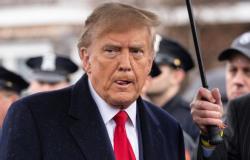Just eight weeks ago, everything seemed almost idyllic for TikTok. Debates about the definitive ban threatened by then-President Donald Trump in 2020 died down, and the acting head of the United States, Joe Biden, set up an account on the Chinese social network in order to reach the country’s 170 million users in the autumn presidential elections.
But then things started to get complicated: a group of fifty American politicians from the ranks of Democrats and Republicans presented a law that put the owner of TikTok in a dilemma. Parent company ByteDance must either sell TikTok or pull it from its biggest market – the US.
American technology companies Meta (Facebook, Instagram), Alphabet (YouTube, Google), Snap (Snapchat) and Amazon would certainly profit from a possible ban. To the latter, TikTok intervenes in the industry by introducing the TikTok Shop service, i.e. direct sales from the platform. The founder of Meta, Mark Zuckerberg, has long considered TikTok to be the only relevant threat to his empire, he first spoke out against it back in 2019.
“While our services like WhatsApp are used by protesters and activists around the world thanks to strong encryption and privacy protections, on the Chinese app TikTok, which is rapidly expanding around the world, mentions of these protests are censored, even in the US,” he said. “Is this the Internet we want?” he asked at the time on the grounds of Georgetown University.
TikTok is a real threat to Facebook, which was confirmed by the fact that the usual tactic of the largest social network in the world, which it normally applies against new competition, did not work: i.e. copying a popular function. This is how Zuckerberg managed to eliminate Snapchat’s risk when he responded to its success by introducing Stories on Instagram. TikTok wanted to hit the ground running with the launch of Reels, a short video format, again on Instagram. But even that couldn’t slow down TikTok’s growth.
According to the estimates of the analytical company eMarketer, the corporation under the leadership of Mark Zuckerberg could reach up to 27 percent of the revenues that currently flow to TikTok in the American market.
How to cancel a TikTok account
How to cancel a TikTok account
“A possible ban on TikTok would probably lead to the migration of some users towards Meta or Snapchat’s platforms. So from this point of view, it would be positive for these companies,” thinks Tomáš Pfeiler, portfolio manager from Cyrrus. On the other hand, he points out that the pressure on TikTok may also foreshadow a generally tougher approach to the regulation of tech giants.
It should also not go unnoticed that some American legislators, who participated with their votes in the smooth passage of the legislation, recently bought shares in Meta, the company that should make the most from the ban. One of them, for example, was a congressman https://twitter.com/unusual_whales/status/1783213851930230926 who bought a stake in Meta for $700,000 before the law was passed.
However, it seems that the United States is not going in this direction for the time being, it does not have instruments in its legal system like the European Union. It introduced the Act on Digital Services, which clearly sets out the conditions under which some of the social networks can be banned. A possible ban thus threatens Facebook and TikTok in the same way in EU countries.
On the contrary, the businessman Jeff Yass, whose company Susquehanna International Group was one of the first investors in TikTok ten years ago, would lose from the whole case. Specifically, he sent about two million and eighty thousand dollars into it in its early days, the current value of his share is estimated at about 30 billion dollars. Yass is also the largest donor to Republicans this election cycle, sending them $46 million.

In theory, it could be much more in the future, rival Meta’s market capitalization is around $1.25 trillion. The exact value of TikTok is unclear, even less so how much an American “branch” would cost. Estimates vary and range from $20 to $100 billion. It is not even clear whether a sophisticated algorithm that can accurately estimate the profile of a given user and serve him content based on that would be part of the transaction.
American politicians argue in favor of banning the network mainly because of the threat to national security, i.e. that China, where the company originally comes from, can abuse the personal data of American users, or spread propaganda among them that suits the Chinese regime. In any case, the parent company ByteDance is 60 percent owned by institutional investors from the United States, the rest is owned by the company’s co-founders and employees.
According to Bloomberg, the parent company itself considers a possible sale of TikTok as a last resort. At the same time, it is not at all clear whether the approved legislation will stand up in court. When the state of Montana tried to ban TikTok last year, a court overturned its decision. However, this time congressmen, legislators from the White House and the Department of Justice participated in the creation of the law. It can thus be expected that this law will be more prepared for court proceedings, which will certainly occur.
The second unknown, which can have a significant impact on the whole case, is the possible rotation in the White House. Joe Biden and Donald Trump will face off in the fall election. He also tried to block TikTok in the United States in the past, but over time he turned around and now opposes it. Apparently, he was led to this by the fact that the ban on the Chinese social network will benefit Facebook in particular. He removed the former president from his platform after the attack on the Capitol on January 6, and Trump has apparently not forgiven him.
ByteDance has until January 19 next year to sell TikTok, which is exactly one day before the inauguration of the new president. In theory, TikTok’s lawyers could at least try to delay a potential sale until there is a change in the presidency, hoping that once Donald Trump is elected, he would try to push for a turnaround on this aspect of the policy.
Tags: TikTok Facebook politicians
-







